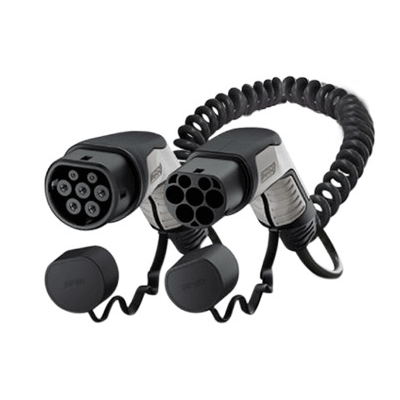There are many different types of electric vehicle charging cables that you might need to purchase. You can use one of these cables to charge your car or truck at home, at work, or at public charging stations.
Here are some tips on how to choose the right EV charging cable for your needs:
Charge level: The first thing you need to know is whether you want a Level 1, Level 2, or Level 3 charging cable. Level 1 cables are designed for low-voltage power sources, such as standard household electrical outlets, and provide about 2 miles per hour of charging. Level 2 cables are designed for 240-volt power sources and can provide up to 30 miles per hour of charging. You’ll need an adapter if you want to use a Level 1 cable in a 240-volt outlet (or vice versa). Finally, Level 3 cables are designed for direct current (DC) connectors on DC fast chargers that provide up to 80 miles per hour of charging. These cables usually aren’t compatible with other types of connectors because they use different wiring configurations than other types of cables do.
The early generations of electric vehicles came with proprietary chargers. The Nissan Leaf and Tesla Model S, for example, both use a connector that’s unique to their cars. But those days are quickly fading away as the industry moves toward a universal standard called CHAdeMO.
CHAdeMO is an abbreviation for “charge de movélisation” in French — the name of the organization behind it. It’s also a common standard used by most manufacturers today, including Nissan, BMW and Volkswagen. You can expect to see more EVs adopt this technology as well as Tesla’s Supercharger system in the future. And if you’ve ever used one of these plugs before, you’ll know just how convenient they are: You simply plug them into your vehicle’s charging port and start charging right away (which is why they’re often called Level 2).
In order to charge your EV at home (or at work), you’ll need an EV charger and an electrician to install it. In addition to the cost of the charger itself, installation can run anywhere from $500 to $1,500 or more depending on the location of your electrical panel and how many circuits are being used.
The main types of chargers available today include:
Level 1 – cordset with single-phase 120VAC 60Hz output
Level 2 – cordset with three-phase 208VAC output
DC Fast – cordset with direct current at 240V+ volts or higher
You can contact https://webwelevcables.co.uk/ for more information.
